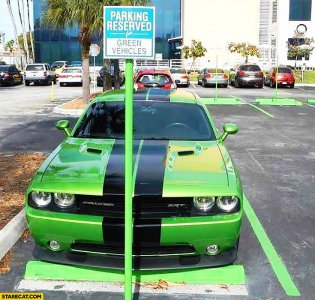I keep seeing Ford touting it's electric F-150 truck. As a person who uses a truck for towing, I found this test eye opening to say the least. Yeah, someday, there may be enough charging stations, and yeah, someday there will be better batteries, and maybe even enough electrical power plants to generate the needed electricity. But, today... in the real world, it just ain't practical.
The test................
The contestants were an electrified Ford F150 pickup vs. a GMC Denali Ultimate Edition with a 6.2-liter V-8 gas engine. Each towed an identical new “toy hauler” trailer about 25 feet in length that, while empty, was large enough to transport an entirely-sheltered automobile. The vehicles began their test in Longmont, Colorado, heading southbound on Interstate 25 toward Denver, about 33 miles away. The F150 charged up and the GMC filled up before taking to the road. The electric truck’s computer estimated 160 miles of range, which included calculating for the size and weight of the trailer. The gas-powered GMC’s computer, also taking the trailer into account, estimated 264 miles of range.
Off they went, with the goal of the F150 getting 147 miles down the road to a fast-charging station in Pueblo, Colorado. But that estimate was optimistic. The electric truck had only traveled 6 miles when the computer recalculated range from 160 to 150 miles, cutting things very close if it was to reach Pueblo. That called for a change of plans — the new charging stop was Colorado Springs, about 45 miles closer. After going 50 miles, the electric truck recalculated its range to indicate it couldn’t even make Colorado Springs. South of Denver, the truck was down to a 20 percent battery charge and, concerned about being stranded with a dead battery, the driver had to turn around and drive the F150 back north to the Denver exurb of Castle Rock to find a fast charger.
With low battery warnings blazing, and power automatically reduced to 90 percent, the electric truck, with 9 percent left on its battery, hobbled into a Target parking lot in Castle Rock. But that caused another problem. Battery chargers tend to be lined in rows on the edge of parking lots. Because they do not provide a drive-through like a traditional gas pump, they cannot accommodate a vehicle with a trailer. As a result, the F150 test vehicle and trailer were blocking a major portion of Target’s parking lot. “They’re probably not
going to sponsor us in the future,” quipped one of the test participants. The gas truck? Its computer showed 129 miles of remaining range, so that driver had enough range to return to their starting point in Longmont. Then came an analysis of costs, which favored the electric vehicle.
In the end, the GMC, after returning to Longmont, traveled 156 miles and used 17.3 gallons of premium gasoline, costing $93.79. That comes to 60.1 cents per mile energy costs. And it still had 65 miles of range remaining. At Castle Rock, the electric F150, after 45 minutes, was charged 74 percent; it was not fully charged due to time limits in needing to return the trailer at a point halfway back to Longmont. Cost of the 74 percent charge was $27. At $27 for 74 percent of a charge, the electric F150 would have been fully charged at about $36.49. Subtract its remaining 9 percent charge valued at about $3.28 and its total energy cost was about $33.21. As a result, its 86-mile trip cost 38.6 cents per mile.
So the electric truck had the energy cost advantage... unless of course you count the fact that it never made the trip.


Can't even imagine how far you wouldn't get if you loaded the trailer. Also, seems like nobody ever looks at the fact that charging stations aren't free.





